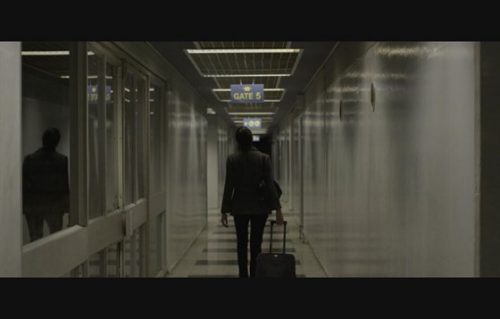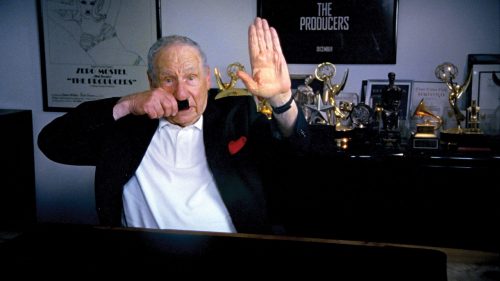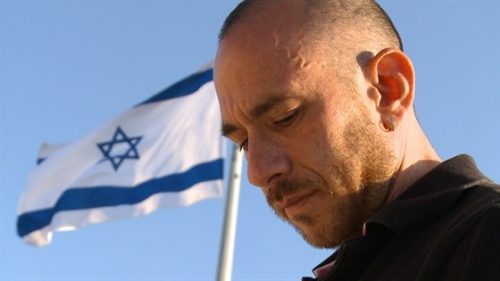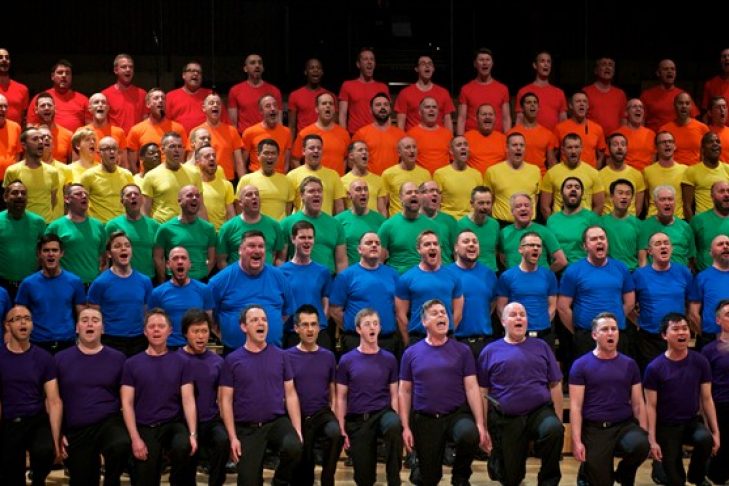Almost three decades ago, Michal Goldman decided to show a selection of films from Israel at Boston University’s student union. In the intervening years, Goldman’s initiative grew into the Boston Jewish Film Festival (BJFF). Now in its 28th year, the festival, with Combined Jewish Philanthropies as one of the presenting sponsors, “has grown to encompass 10 venues across Greater Boston,” says executive director Jaymie Saks. “And with over 11,000 tickets sold, it’s one of the largest film festivals in New England.”
From Nov. 9-21, over 40 films will be screened at the festival. Ariana Cohen-Halberstam, BJFF’s artistic director, says that once again BJFF will present “films from a huge scope of Jewish life—from around the globe and from across genres.”

“A.K.A. Nadia,” a compelling drama from Israel, opens the 2016 festival. Against the backdrop of a divided contemporary Jerusalem, the film sharply delineates Israel’s tense identity politics. Twenty-year-old Nadia Kabir, an Arab woman who has just graduated from a Jewish-Arab all-girls’ school in Jerusalem, is having a secret affair with Nimer, a Palestine Liberation Organization operative. When Nimer is ordered to go to England, Nadia must decide whether to cut all ties with her family to be with him. After the two secretly marry, Nadia follows him to London. When the authorities capture Nimer, Nadia finds herself alone and broke and working long hours in a laundromat. She eventually saves enough money to return to Israel on a false passport that identifies her as a Jew.
Fade out to 20 years later. Nadia is now Maya Goldwasser, married to Yoav, an official at the Ministry of Justice, and the mother of two teenagers. She has a thriving career as a choreographer working on a new dance production that brings together Israeli and Arab elements. The only other tenuous connection to her past is the weekly clandestine picnics she has with her mother.
There’s a river of tension that runs throughout the film until Nadia/Maya is inevitably unmasked. Her undoing is the return of Nimer, who has reinvented himself as a Palestinian official on an arts committee determining whether Maya’s project will receive funding. Nimer immediately recognizes his former wife—a moment the audience has been anticipating. Maya’s past comes back to her in a rush of memory. Maya’s marriage eventually unravels after Yoav discovers his wife’s true identity.
In the end, there are two heroes in “A.K.A. Nadia.” Both Nadia and Maya struggle to survive in a society where the personal and the political blur together. They also pay a steep emotional price to live in a land where occupier and occupied are as hopelessly entangled as Nadia/Maya’s identities. The film is a blunt, oftentimes pessimistic commentary on the possibility of a peaceful co-existence between Israelis and Palestinians.

Mid-festival, BJFF audiences will encounter the documentary “The Last Laugh.” A favorite at the Tribeca Film Festival last spring, the film explores where the line should be drawn when it comes to Holocaust humor. Commentary from the likes of Mel Brooks, Sarah Silverman, Gilbert Gottfried, Judy Gold and others sheds light on the healing, cathartic effects of comedy in general and jokes about the Holocaust in particular. As Silverman observes: “Comedy puts light onto darkness, and darkness can’t live where there’s light. So that’s why it’s important to talk about things that are taboo, because otherwise they just stay in this dark place and they become dangerous.”
While comics like Joan Rivers and Silverman are often considered over the line in terms of what’s appropriate when it comes to Holocaust comedy—Rivers once joked that she hadn’t seen a German looking as hot as Heidi Klum since they were pushing Jews into the ovens—Brooks confesses that while he can skewer the Nazis in “The Producers,” he won’t tell a Holocaust joke. At his 2014 tribute by the American Film Institute, he visibly cringed when Silverman’s introduction included the joke: “What do Jews hate most about the Holocaust? The cost.”
“The Last Laugh” also presents 91-year-old Auschwitz survivor Renee Firestone’s dynamic perspective. Firestone, who still exudes the strong life force that undoubtedly contributed to her survival, freely admits that survivors tell their own Holocaust jokes. “Humor kept me going after the Holocaust,” she says. To prove her point, she tells a darkly ironic and funny anecdote about the notorious doctor of Auschwitz, Josef Mengele. Mengele told her that if she survived the war she should have her enlarged tonsils removed. Firestone’s inclusion in the film brings up the all-important question of moral authority—who has the right to tell a Holocaust joke? Brooks is willing to give comics that privilege even if he himself can’t wisecrack on the subject.
The underlying question throughout the film—does putting a comedic spin on Holocaust vocabulary and images trivialize it?—is not definitively answered. Roz Weinman, who was in charge of standards and practices for NBC when “The Soup Nazi” episode of “Seinfeld” aired, regrets allowing the term to be used in the episode. A child of Holocaust survivors, Weinman is distressed that the term entered pop culture and worries that it demeaned the Holocaust.
One of the more telling scenes in “The Last Laugh” shows Firestone viewing famous YouTube clips of Holocaust routines by Silverman and Ricky Gervais, which she doesn’t find particularly amusing. Some audience members might well agree with her.

Another documentary, “Who’s Gonna Love Me Now?,” will close the festival. Saar Moaz is a gay Israeli living in London. His life is immeasurably complicated when he learns that he’s HIV-positive. The film’s title encapsulates the overarching question animating every scene in this poignant film. Who will love Moaz post-diagnosis? It’s not a rhetorical question. Moaz grew up in an Orthodox family and was kicked out of his religious kibbutz when he came out. He’s been in London for 20 years, where his great joy and comfort is singing in the London Gay Men’s Chorus. The chorus stands in as a second family for Moaz while his own family struggles to accept him.
The film goes between London and Jerusalem, where Moaz’s macho father, a former paratrooper, is a tour guide on Ammunition Hill. When he pays a visit to his son, Moaz takes him to a café in a gay London neighborhood. With a mixture of curiosity and hesitation, his father asks how one determines which passersby are straight or gay. In another scene, his father off-handedly asks why Moaz can’t take a pill literally to set him straight. Perhaps inadvertent, it nevertheless stands out as a cruel allusion to the myriad medications Moaz must take every day to stay ahead of his illness.
On a separate trip to London, mother and son are making latkes for Hanukkah when Moaz cuts himself grating potatoes. “You definitely don’t want my blood in your food,” he tells her as she breaks down crying. Although they share the same blood, the fact that contact with Moaz’s infected blood is potentially fatal is a quiet devastation for his mother.
In one of the more intense scenes in the documentary, Moaz confronts his kippah-wearing brother about whether or not to come home to Israel. The family wants him back in the fold, but Moaz questions if he has a place among them. Confirming Moaz’s worst fears, his brother tells him that he worries Moaz will infect his young daughters. His sister-in-law, who has been silent throughout the conversation, quietly asserts at the end, “I’m also the mother of our children and I have to say that I’m not worried.” It’s a triumphant moment in the film.
Moaz ultimately decides to leave London and his beloved choir to be closer to his family. In Israel he works for an AIDS organization. But this seemingly neat ending belies the wrenching and complex decision-making that led to Moaz’s return to Israel.
Of these three films that anchor the festival, Cohen-Halberstam asserts that “at their core, these films are asking, ‘How is Jewish experience lived in our larger world?’ And this plays out in really different ways. This question of Jewish experience is examined through an entirely different angle in ‘A.K.A. Nadia,’ in which the Jewish identity is borrowed. In ‘The Last Laugh’ the filmmakers question the familiar Jewish experience of coping with tragedy through humor: Is everything fair game, including the most painful Jewish experience in recent history, the Holocaust? And in ‘Who’s Gonna Love Me Now?’ a man who left his religious community in Israel to find a secular one in London finds himself wanting to return and reconcile with his family at a moment where he’s feeling most alone.”



